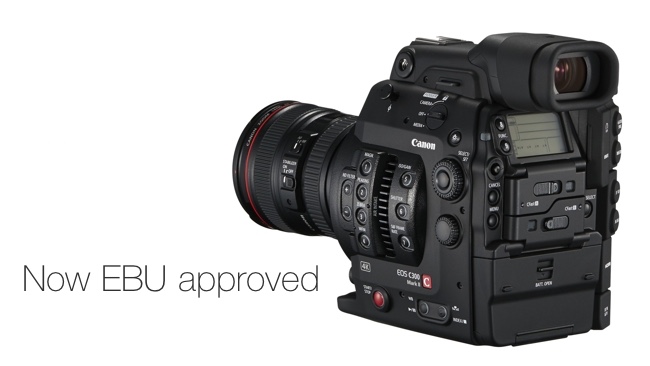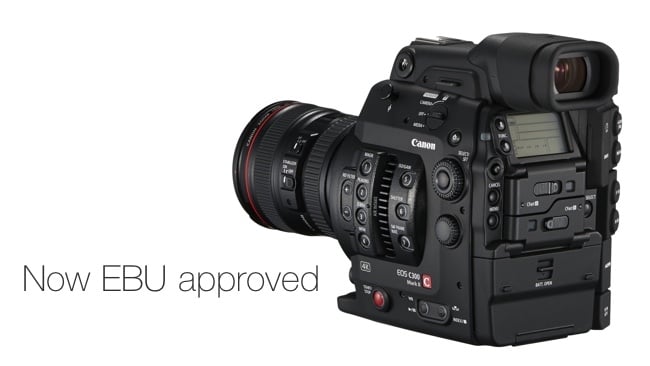
 Canon's EOS C300 Mark II: approved for HD and UHD
Canon's EOS C300 Mark II: approved for HD and UHD
The European Broadcast Union has had the Canon EOS C300 Mark II independently tested and cleared it for use on HD and Ultra HD programmes. It might sound overly bureaucratic, but such paperwork is really important for the way a camera is perceived in the industry.
The EBU report, which you can read in its entirety here https://tech.ebu.ch/docs/tech/tech3335_s18.pdf if you really want to, essentially recognises image capture of up to 15 stops of dynamic range using Canon Log2 and qualifies the EOS C300 Mark II for R.118 Tier 1 in HD and Tier 2 in UHD2.
This is actually a bigger deal than it sounds. Large broadcasters and organisations — the EBU, Discovery, the BBC — can make or break the broadcast career of a camera, and indeed it was the BBC that almost single-handedly killed off Super 16 a decade or so ago when it said that it would not accept HD material sourced from the format.
Basically, it’s all about establishing a minimum quality threshold; which, as Canon itself points out, is an important consideration when a compressed image needs to survive editing, grading, encoding and transmission before it reaches audiences in its final pictures.
The HD Tier 1 category means that cameras can be used without restriction on any high definition programme (even though it goes on to state that they are usually shoulder mounted or system cameras with interchangeable lens mounts). That means anyone can shoot anything on it, all the way up to a Game of Thrones or Downton Abbey, and the EBU member broadcasters won’t bat an eyelid. UHD Tier 2 is slightly less cut and dried, but essentially refers to cameras that don’t offer the full 3840 x 2160 UHD resolution (though the spec has to be greater than 2880 x 1620) but are still cleared for use on top-end dramas etc.
Here are the report’s conclusion about that: “The recording coder bit-rates (up to 410Mb/s) and bit-depths (10 and 12) would qualify the camera for R.118 Tier 1, for both HD and UHD. The sensor size qualifies it for Tier 1 but UHD requires full resolution (3840x2160) in each of RG and B. Therefore the camera can qualify for Tier 1 in HD but only for Tier 2 in UHD.
‘Noise levels are good, the camera easily qualifies for Tier 1 in HD, and for Tier 2 in UHD provided the Canon Log 2 setting is used," it continues. "With noise reduction set at not more than 5, the qualification holds up to ISO6400 (30dB gain), and the levels of aliasing drop virtually to zero. Dynamic range is very good - the Canon Log 2 settings deliver up to 15 stops, Canon Log delivers about 13.5 stops, BT.709 delivers about 11 stops.”
“Testing our cameras using the European Broadcast Union’s methodology is a very important step for us,” said Austin Freshwater, Director, Professional Imaging at Canon UK. “With the EOS C300 Mark II, we aimed to design a camera that lets both filmmakers and broadcast producers realise their creative vision. It’s because of this commitment that the EOS C300 Mark II offers users the very best image quality and we’re incredibly pleased that these test results back that up.”
Tags: Production


Comments